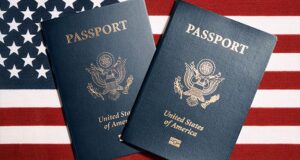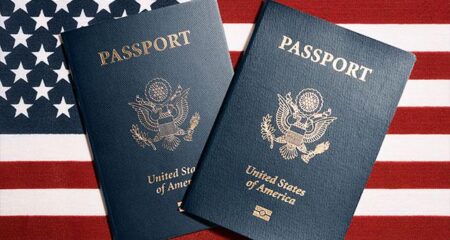Unprecedented Military Deployment in Washington, D.C.: Examining Its Significance and Consequences
Heightened Security Measures Reflect Uncommon Threats in the NationŌĆÖs Capital
The activation of military personnel in Washington, D.C. by a former president represents a notable deviation from established practices, highlighting escalating security concerns within the federal district. This extraordinary step signals an elevated alert status rarely seen in recent decades, prompting scrutiny over the nature and severity of threats that justified such a response.
Several factors contribute to the uniqueness of this deployment:
- Departure from established norms: Unlike routine National Guard activations for natural disasters or public events, this mobilization occurred amid highly charged political circumstances, intertwining security imperatives with political dynamics.
- National security ramifications: The unprecedented use of troops underscores fears of potential instability at the core of U.S. governance, revealing vulnerabilities even within the most secure federal precincts.
| Reason | Consequence |
|---|---|
| Setting a Political Precedent | Challenges the traditional separation between military and civilian authority |
| Elevated Security Alert | Highlights serious perceived threats to federal institutions |
Repercussions for Civil-Military Dynamics and Public Confidence in Governance
The deployment of federal troops in the capital under presidential directive profoundly impacts civil-military relations by blurring the lines that traditionally ensure civilian control over the armed forces. When military involvement intersects with domestic political conflicts, it risks compromising the militaryŌĆÖs essential apolitical role, which is foundational to democratic stability. This exceptional action prompts urgent reflection on the militaryŌĆÖs place within civil society and the potential erosion of safeguards designed to prevent military overreach into political affairs.
Public trust in governmental institutions is jeopardized when troop deployments are perceived as politically motivated rather than security-driven. Such perceptions can deepen societal divisions and foster skepticism toward both military and civilian leadership. The table below contrasts standard expectations with concerns arising from this deployment:
| Standard Expectation | Emerging Concern |
|---|---|
| Military impartiality in political matters | Risk of perceived partisanship |
| Safeguarding democratic institutions | Apprehension about militarizing political disputes |
| Ensuring public safety and order | Potential intimidation of civilians and elected officials |
- Transparency is critical; without clear and open communication, military deployments risk being viewed as threats to civil freedoms.
- Rebuilding trust necessitates strict adherence to nonpartisan military engagement focused solely on legitimate security concerns.
Contextualizing the Political Environment Surrounding Federal Troop Mobilization
The decision to send federal troops into Washington, D.C. amid widespread protests represents a rare and contentious moment in U.S. political history. Traditionally, the federal government has exercised caution in deploying military forces domestically, reserving such measures for extreme emergencies. This particular mobilization occurred against a backdrop of intense political polarization, with the President emphasizing the need to maintain order while simultaneously advancing contested claims regarding election integrity. This dual narrative blurred the distinction between governance and political maneuvering, intensifying public discourse on the appropriate scope of federal power in a democracy.
Key considerations surrounding this deployment include:
- Federal versus local jurisdiction: The intervention challenged conventional boundaries between local law enforcement responsibilities and federal authority, raising constitutional debates.
- Impact on civil liberties: The presence of armed forces in the capital raised alarms among civil rights advocates concerned about potential suppression of peaceful demonstrations.
- Political messaging: Beyond security, the troop deployment served as a signal of resolve to both domestic audiences and international observers.
| Aspect | Traditional Practice | 2020 Deployment |
|---|---|---|
| Military Use | Rare, limited to natural disasters or insurrections | Deployed amid disputed election and political unrest |
| Local-Federal Relations | Local authorities primarily manage civil order | Federal forces intervened proactively |
| Public Reception | Generally accepted as a last-resort measure | Highly controversial, sparking national debate |
Strategies for Harmonizing Security Imperatives with Democratic Principles and Civil Rights
Balancing urgent security demands with the preservation of democratic freedoms requires a comprehensive and nuanced approach. Accountability and openness must be at the forefront, ensuring that any domestic military deployment undergoes stringent oversight. Establishing independent review panels or bipartisan commissions to assess the necessity and conduct of such operations can prevent abuses of power and enhance public confidence. Furthermore, codifying explicit legal frameworks that delineate the permissible scope of military involvement is essential to prevent overextension while enabling effective crisis response.
Protecting civil liberties remains equally vital, safeguarding citizensŌĆÖ rights to peaceful protest and free expression. Authorities should prioritize measured, non-aggressive tactics and emphasize de-escalation over force. Comprehensive training programs for military and law enforcement personnel on constitutional rights during civil disturbances can mitigate conflicts and uphold democratic norms. The table below summarizes key approaches to maintaining this delicate balance:
| Approach | Explanation |
|---|---|
| Independent Oversight | External bodies review troop deployments to ensure accountability |
| Defined Legal Parameters | Clear rules limit military actions to proportional responses |
| Rights-Focused Training | Prepares forces to respect civil liberties during unrest |
| Emphasis on De-escalation | Prioritizes nonviolent methods over aggressive interventions |
Final Thoughts
In conclusion, the former PresidentŌĆÖs unprecedented directive to deploy troops in Washington, D.C. highlights the extraordinary nature of the moment and provokes essential discussions about the role of military force within the nationŌĆÖs capital. As policymakers and citizens continue to evaluate the ramifications, this event will remain a pivotal reference point in debates over executive authority, civil-military relations, and the safeguarding of democratic institutions in times of crisis.







